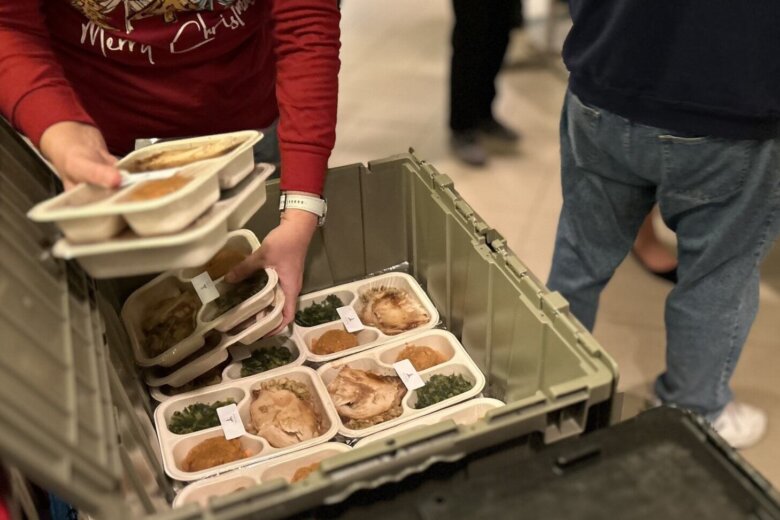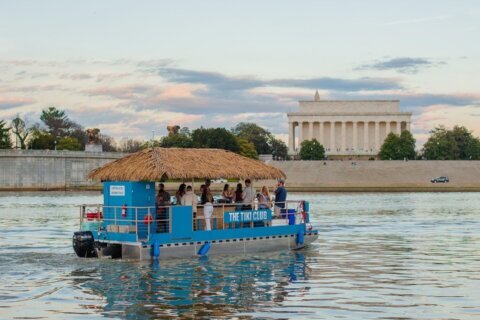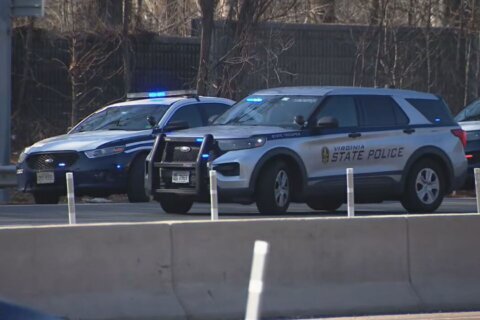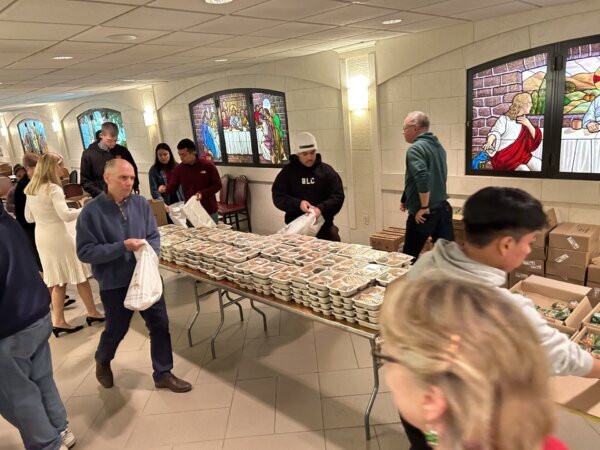
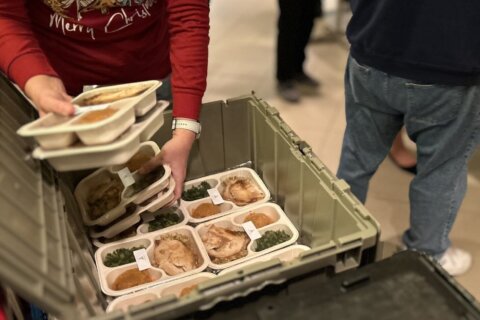
Before the sun came up, and before most Christmas presents were opened, dozens of volunteers in Northeast D.C. were hard at work in the spirit of giving.
In the cafeteria area of the Basilica of the National Shrine of the Immaculate Conception, volunteers assembled Christmas meals for 1,500 people in the District, plus Maryland’s Montgomery and Prince George’s counties, for delivery.
“We are all alone at some point, and there’s not a one of us who is never in need,” said Valencia Camp, director of special events at the national basilica.
Each year, the basilica sends a letter to senior communities, parishes in the Archdiocese of Washington and other D.C.-area organizations, offering delivered meals on Christmas Day.
In the packed-fresh meal is turkey, stuffing, sweet potatoes, greens, as well as cornbread and a brownie.
Traditionally, Christmas dinner is a time of togetherness, Camp said.
“We celebrate the birth of Christ — that is the religious significance,” she said. “All of us receive the gift of being able to share, and our sharing the meal is our gift to our brothers and sisters who are not necessarily going to have the happiest Christmas Day.”
For some, joyous family gatherings are only a memory.
“We are all alone with our thoughts,” Camp said. “We all have an experience or situation that we’ve encountered that we don’t share with others, or when we do share, it’s not necessarily fully understood — that creates a level of aloneness.”
Assembling Christmas meals for 1,500 people alone or in need. Volunteers at @MarysShrine up before dawn helping others. pic.twitter.com/8wV50SjeJd
— Neal Augenstein (@AugensteinWTOP) December 25, 2023
Camp said in addition to food insecurity, some meal recipients feel isolated.
“The driver and the runner who delivers the meal to them may be the only person they speak to on Christmas Day — it may be the only smile they receive on Christmas Day,” she said.
Camp said many of the recipients can’t leave their homes. Some are on walkers, while others use wheelchairs: “I had someone say, ‘Just knock on the door and leave it, because I’m in a wheelchair, and it’ll take me a while to get there.'”
She’s taken calls from caring neighbors of recipients, who asked the meals be delivered to their door “because they can’t hear very well, and they’re not going to hear you knock on the door.”
Camp said acknowledging a need is difficult to most people.
“Asking for help is a humbling experience,” she said. “It really reminds us of our faith, our community, how we have to reach out to others and when we say yes to helping others, we are humbled in saying ‘yes’.”

